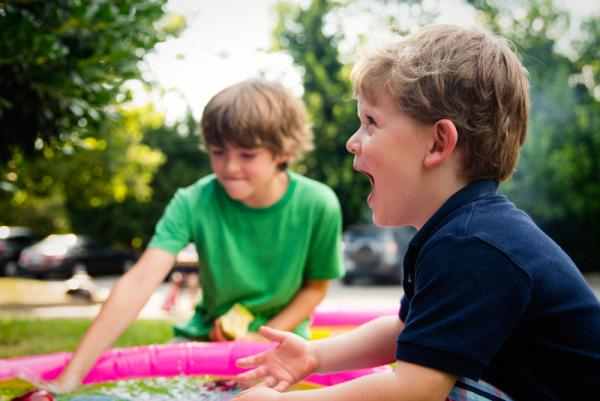
Children under the age of six are working hard at being kind and tolerant but parents still feel there is much to learn, according to new research.
Not always telling the truth, not interrupting when someone is talking and how to use a 'quiet voice' when making observations in public have been revealed as some of the most difficult traits to teach young children.
Dr Jacqueline Harding, early childhood studies academic based at Middlesex University London, said: "This interesting piece of research demonstrates that UK parents are keen to help their children get to grips with being kind but are looking for practical ways to step up the action when real-life, tricky situations occur."
Pre-school show 'The Clangers' commissioned a survey of 1,400 parents of two to six-year-olds as part of its #ClangersForKindness campaign.
The survey revealed that patience, good behaviour and understanding they cannot always have their own way are difficult traits to teach children, along with tidying toys after playtime, being kind to siblings and not interrupting when someone is talking.
However, of the kind acts that young children in the UK naturally do, more than two thirds share toys, sweets and treats, help out their parents, and enjoy giving compliments and gifts, such as pictures they have drawn.
According to the survey, around 30 per cent of UK parents try to nurture kindness in their children from birth, whilst a quarter wait until they are aged two. Only eight per cent wait until their child is three or above before trying to instil kindness.
Whilst parents often nurture kind behaviour in their children by being kind themselves, most say they need to remind their children to be kind and frequently resort to incentives such as sweets and treats as persuasion.
A spokesman for The Clangers said: "We found that UK parents are committed to nurturing great qualities in their children, but there’s so much more we can all do to spread kindness even further. It’s never too early to work on making kindness a big part of children's lives."
As part of the research, Dr Harding has provided parents with practical ways to help children grow into kind individuals, such as sending thank you notes for presents, picking up litter and paying compliments.
The top ten kindness tips to practice with children:
• Be kind
• Visualise kindness together
• Help children understand
• Respect the environment
• Say please and thank you
• Give compliments
• Help others
• Give gifts
• Share
• Take part in Clangers for Kindness





